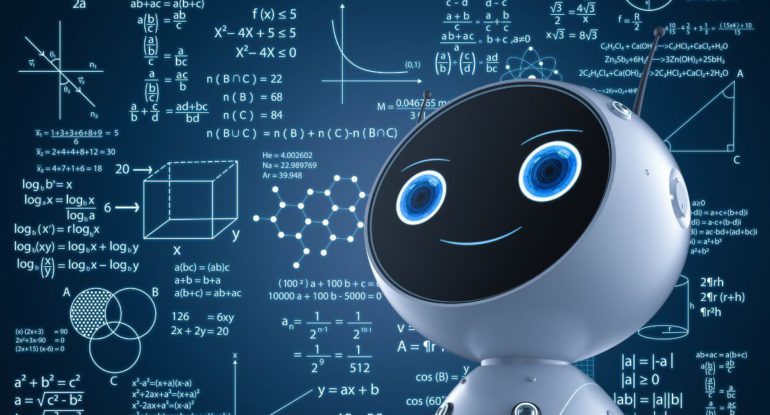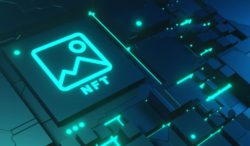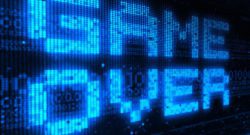The Intersection of Machine Learning and NFT Gaming: Implication And Potential

The world of gaming has been evolving at an unprecedented pace in recent years, and the rise of blockchain technology has ushered in a new era of gaming experiences that are more immersive, transparent, and secure than ever before. Non-fungible tokens (NFTs) have emerged as a key component of this revolution, offering gamers and developers a new way to create, trade, and own digital assets. And now, with the advent of machine learning algorithms, NFT gaming is set to reach new heights of sophistication and complexity.
Machine learning algorithms are a type of artificial intelligence (AI) that enables computers to learn and improve their performance over time by analyzing data and identifying patterns. In the context of gaming, machine learning can be used to enhance the gaming experience in a variety of ways. For example, machine learning algorithms can be used to create more realistic and dynamic virtual environments, to personalize the gaming experience based on individual player preferences, and to develop more sophisticated and challenging opponents.
In the realm of NFT-based gaming, machine learning algorithms can be used to create more intelligent and adaptive digital assets. For example, NFTs that incorporate machine learning algorithms can learn from player interactions and adapt their behavior accordingly. This means that NFT-based characters or creatures could become more skilled or powerful over time, based on the way they are played and the challenges they face. This would create a new level of complexity and depth to NFT-based games, and offer players a new level of engagement and investment in their digital assets.
Another potential application of machine learning in NFT-based gaming is the creation of predictive analytics models. These models could be used to analyze player behavior and predict future trends in the gaming industry. This information could then be used to guide game development and marketing strategies, helping developers to stay ahead of the curve and create more engaging and profitable games.
However, there are also some potential challenges and risks associated with the intersection of machine learning and NFT-based gaming. For example, there are concerns about privacy and data security, as machine learning algorithms require large amounts of data to operate effectively. Additionally, there are concerns about the potential for bias or discrimination in machine learning models, which could have unintended consequences in the gaming industry.
Overall, the intersection of machine learning and NFT gaming offers exciting opportunities for innovation and growth in the gaming industry. As developers continue to experiment with new technologies and approaches, we can expect to see more sophisticated and engaging gaming experiences that leverage the power of machine learning algorithms. However, it will be important to carefully consider the potential risks and challenges associated with these new technologies, and to develop appropriate safeguards and regulations to ensure that they are used ethically and responsibly.
9) Altered State Machine@altstatemachine‘s Non-Fungible Intelligence will bring unprecedented utility to #FLUFWorld‘s collections via machine learning.
Their NFT brains enable smart avatars, via the ability to store memories, upskill in gaming environments, & more… 🧠 pic.twitter.com/RrAMDMMRL6
— FLUF World (@flufworld) March 14, 2022
The top 10 potential for machine learning algorithms to enhance NFT gaming
Machine learning algorithms have the potential to revolutionize the gaming industry, particularly in the context of NFT-based games. Here are the top 10 potential ways that machine learning could enhance NFT gaming:
Personalized gaming experiences: Machine learning algorithms can be used to create personalized gaming experiences based on a player’s behavior, preferences, and other data points. This could include recommending in-game purchases or tailoring game difficulty levels to the player’s skill level.

Adaptive digital assets: Machine learning algorithms can be used to create adaptive digital assets that change and evolve over time based on player behavior or other factors. For example, a weapon in a game could become more powerful as the player uses it more often.

Enhanced fraud detection: Machine learning algorithms can be used to detect and prevent fraud in NFT-based games, such as identifying fake or counterfeit NFTs.

Improved game balance: Machine learning algorithms can be used to analyze gameplay data and make adjustments to game balance in real-time, ensuring a fair and enjoyable gaming experience for all players.
Automated customer support: Machine learning algorithms can be used to automate customer support for NFT-based games, including handling basic inquiries and identifying and resolving more complex issues.
Advanced game analytics: Machine learning algorithms can be used to analyze gameplay data and provide insights into player behavior and preferences, which can inform game design and development decisions.
Real-time market analysis: Machine learning algorithms can be used to analyze NFT market trends in real-time, providing valuable insights into market dynamics and helping developers and players make informed decisions about NFT purchases and sales.
Predictive maintenance: Machine learning algorithms can be used to predict and prevent hardware failures in gaming systems, minimizing downtime and ensuring a seamless gaming experience for players.
Improved game design: Machine learning algorithms can be used to generate new and innovative game design ideas, as well as to optimize existing game design elements based on player feedback and behavior.

Enhanced security: Machine learning algorithms can be used to detect and prevent security breaches and cyber attacks in NFT-based games, protecting player data and ensuring the integrity of the gaming experience.
 The potential applications of machine learning in NFT gaming are vast and exciting. From personalized gaming experiences to enhanced fraud detection and improved game balance, machine learning has the potential to revolutionize the gaming industry and provide players with a new level of engagement and immersion.
The potential applications of machine learning in NFT gaming are vast and exciting. From personalized gaming experiences to enhanced fraud detection and improved game balance, machine learning has the potential to revolutionize the gaming industry and provide players with a new level of engagement and immersion.
Also, read – What Is NFT Gaming: Top 10 NFT Gaming Trends In 2023
Conclusion
The intersection of machine learning and NFT gaming represents a significant opportunity for the gaming industry to evolve and improve. By leveraging the power of machine learning algorithms, developers can create more immersive, dynamic, and engaging gaming experiences that offer players a new level of investment and interaction with their digital assets. From personalized gaming experiences to adaptive digital assets, the potential applications of machine learning in NFT-based gaming are vast and exciting.
However, it is important to recognize that there are also potential risks and challenges associated with these new technologies. From concerns about privacy and data security to potential biases or discrimination in machine learning models, it will be crucial for developers and regulators to carefully consider the implications of these new technologies and develop appropriate safeguards and regulations.
Despite these challenges, the potential benefits of machine learning in NFT-based gaming are significant. By staying ahead of the curve and embracing these new technologies, developers and companies can gain a competitive edge and provide players with innovative and engaging gaming experiences. As the gaming industry continues to evolve, we can expect to see even more exciting and groundbreaking applications of machine learning and other emerging technologies.




























































